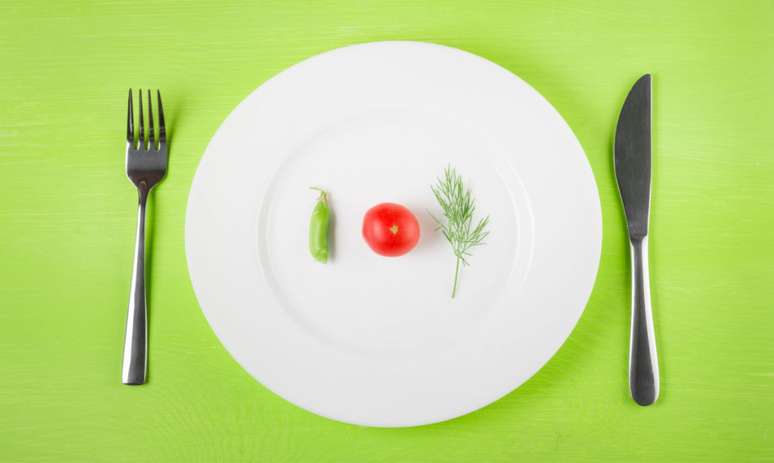Restrictive diets are not really effective in weight loss. Furthermore, they damage physical and mental health.
Restrictive diets become a temptation for those who want to lose weight quickly. However, they can cause various damage to health, as well as not being effective for weight loss. Even so, they often become popular due to the profits they promise, and they also end up becoming a fad among people who want to radically change their diet.
html[data-range=”xlarge”] figure image img.img-244f1a10e2c13cc6e15f98f9c2cdcd84z0n88zj1 { width: 774px; height: 463px; }HTML[data-range=”large”] figure image img.img-244f1a10e2c13cc6e15f98f9c2cdcd84z0n88zj1 { width: 548px; height: 328px; }HTML[data-range=”small”] figure image img.img-244f1a10e2c13cc6e15f98f9c2cdcd84z0n88zj1, html[data-range=”medium”] figure image img.img-244f1a10e2c13cc6e15f98f9c2cdcd84z0n88zj1 { width: 564px; height: 337px; }
While these diets can provide rapid initial weight loss, they are often unbalanced. Some examples of fad diets include the soup diet, moon diet, lemon diet, blood type diet, protein diet, intermittent fasting diet, and others.
Restrictive diets and their risks
Nutritionist Cris Ribas Esperança explains that it is important to understand that there is no universally ideal diet. This is because nutritional needs vary according to each organism, age group and goal in question. Additionally, these diets are often extreme and restrictive and can lead to nutrient deficiencies and negative side effects such as fatigue, dizziness, constipation, mood swings and hormonal imbalances.
Nutritionist dr. Ronan Araujo explains that the first risk of a restrictive diet is the lack of nutrients that are important for the proper functioning of the body. When food intake is limited, the body may not get all the nutrients it needs to stay healthy. This nutritional imbalance can lead to health problems such as anemia, muscle weakness, hair loss, among others.
Another risk of restrictive diets is the loss of muscle mass. By drastically reducing the intake of calories and nutrients, the body goes into a state of deprivation and begins to use up energy reserves, including muscle mass. This can lead to loss of strength and stamina, as well as making it difficult to maintain weight after a diet.
“Loss of muscle mass can also impact metabolism, making it more difficult to burn calories and control weight. This is because muscle tissue is responsible for higher energy expenditure than fat tissue. That is, the lower the muscle mass, the lower the caloric value spent at rest”, clarifies the doctor.
Plateau effect and eating disorders
The nutritionist also comments that these diets are difficult to sustain long-term. Therefore, very often after the end of the diet, the weight returns again. That’s because restrictive diets often involve calorie or nutritional restrictions, which can lead to rapid and significant short-term weight loss.
However, this weight loss can be unsustainable, as people often revert to their previous eating habits, which are often unhealthy. This leads to even more weight gain than when starting the diet, creating the accordion effect, which can be very dangerous, warns Ronan.
A food restriction can also lead to compulsive behaviors, which can negatively affect people’s quality of life and psychological well-being. In addition to the health risks, restrictive diets can cause eating disorders such as anorexia nervosa and bulimia. These disorders can pose serious physical and mental health risks and need proper treatment.
Therefore, understanding the causes and treatments for this behavior is essential. Thus, it is possible to help people deal with these problems and promote healthy and balanced eating habits.
healthy weight loss
Cris recommends that dietary change be done gradually and with follow-up from a health professional, such as a nutritionist. “The most important thing is to know how to eat and not stop eating. A balanced and healthy diet must include a variety of foods, such as fruits, vegetables, whole grains, lean proteins and healthy fats. It must also be tailored to the needs of every person,” they say.
The nutrilogist underlines that a healthier alternative for those who want to lose weight is to adopt a healthy lifestyle. This includes a balanced diet and regular physical activity.
Another alternative is food re-education, which consists in learning to make healthier and more balanced food choices, without constraints or prohibitions. It takes time and dedication, but it’s a more sustainable and healthier way to lose weight and maintain a healthy lifestyle in the long run.
“You have to keep in mind that it’s not the quantity you eat, but the quality of the food. Restrictive diets are not a healthy or sustainable solution to losing weight. Dietary and lifestyle re-education can be one way to learn how to make healthier food choices without restrictions or bans,” Ronan points out.
It’s worth remembering that healthy eating is a lifestyle and not a temporary diet. The ideal is to adopt healthy and sustainable eating habits, easy to maintain in the long term, without putting your health at risk.
“It’s important to be wary of fad diets and seek professional guidance before adhering to any diet to ensure that the diet is healthy and sustainable over the long term, promoting overall health and well-being. What works for you, because a lifestyle healthy must be sustainable”, concludes the nutritionist.
Source: Terra
Ben Stock is a lifestyle journalist and author at Gossipify. He writes about topics such as health, wellness, travel, food and home decor. He provides practical advice and inspiration to improve well-being, keeps readers up to date with latest lifestyle news and trends, known for his engaging writing style, in-depth analysis and unique perspectives.









